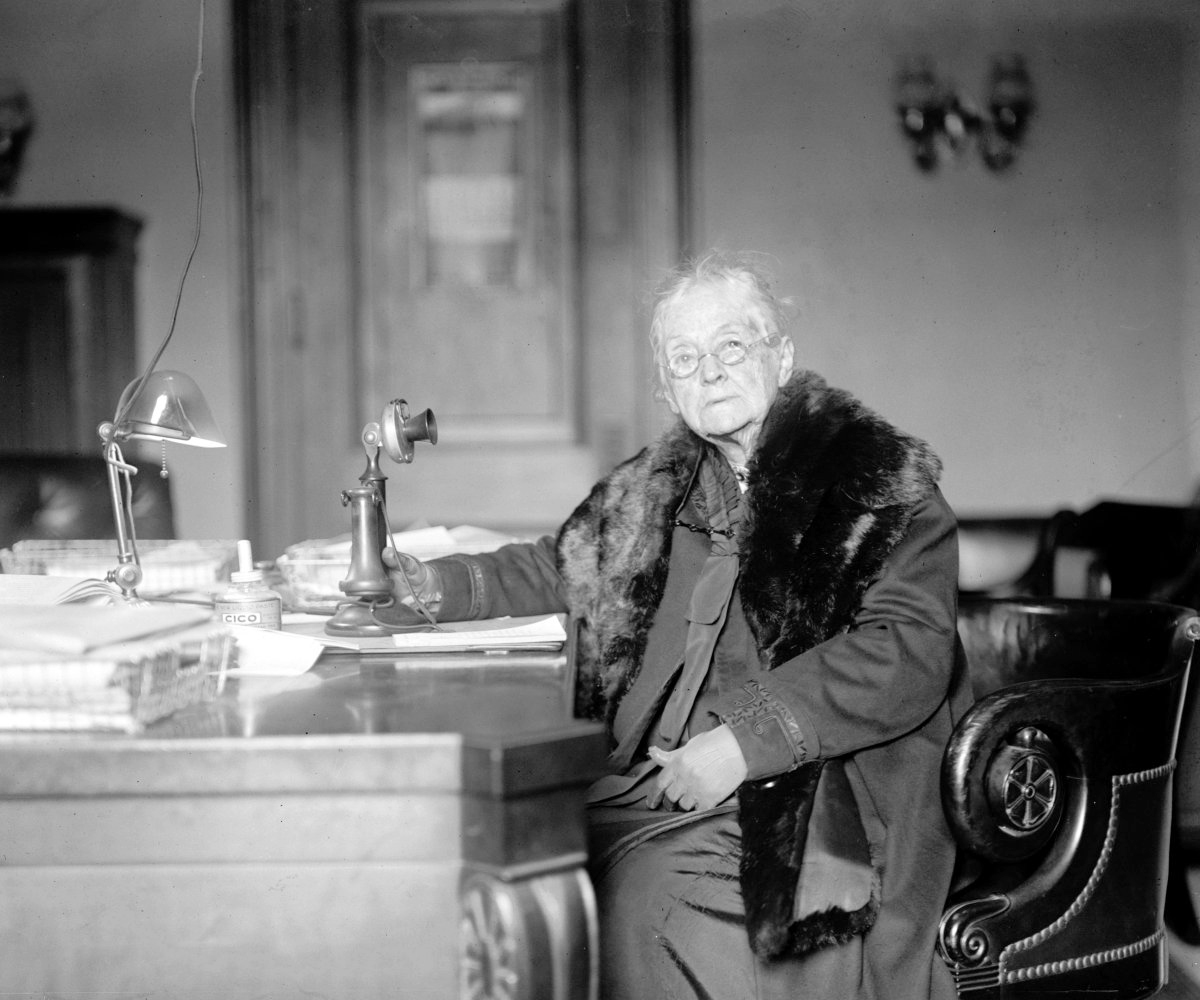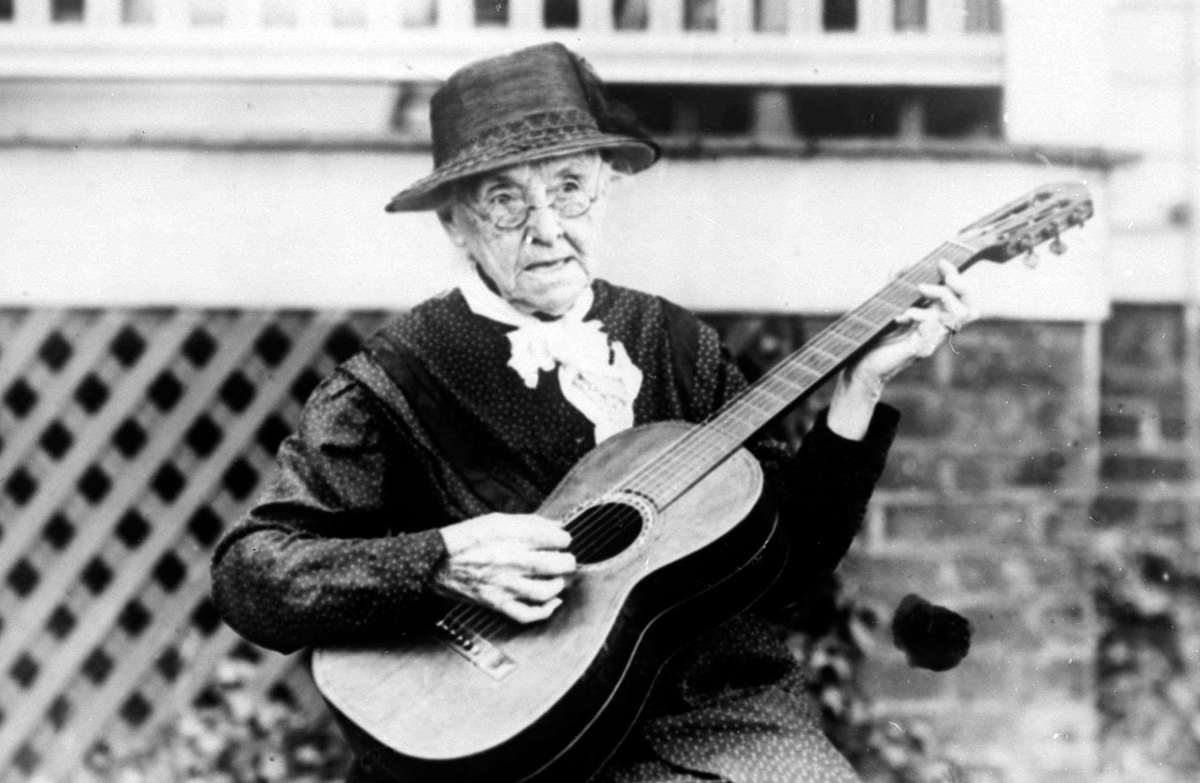Rebecca Latimer Felton was an American politician, writer, and women’s rights activist. She was born on June 10, 1835, in Decatur, Georgia, and passed away on January 24, 1930. Felton is best known for her advocacy for women’s suffrage and for her brief but significant tenure as the first female United States Senator. Felton was an outspoken advocate for women’s rights throughout her life. She actively supported the suffrage movement and was involved in various social and political reforms, including education and prison reform. Felton also used her platform as a writer to discuss and challenge societal norms and inequalities. Felton was also a white supremacist and the last slave owner to serve in the Senate who spoke vigorously in favor of lynching African Americans, under the pretense of protecting the sexual purity of white women. Ironically, many of the African Americans she admonished were falsely accused of rape.

While she was a crusader for progressive reform, Felton was also one of the South’s most vocal supporters of lynching. In 1897, Felton delivered a speech to the Georgia State Agricultural Society titled “Woman on the Farm.” The speech, which Felton gave in many different settings over the 1890s, encapsulated her views on gender and race as well as her fears of miscegenation. On the one hand, she urged the state to provide more educational opportunities for white women; on the other, she advocated the lynching of Black men to protect white women from rape. Citing several newspaper reports of interracial rape, she faulted the institutions of the South, and especially white men of influence, for failing to protect white women’s “innocence and virtue.” In closing, Felton said that if lynching would “protect woman’s dearest possession from the ravening human beasts – then I say lynch, a thousand times a week if necessary.” This line would be repeated by the press and Felton herself in the following years.

In 1898, Alexander Manly, editor of a Black-owned newspaper in Wilmington, North Carolina, responded directly to Felton’s speech. Among other things, Manly pointed to the prevalence of interracial sex throughout the South’s history, including those instigated by white men and willingly engaged in by white women. White Democrats in North Carolina held up the editorial as an example of the perils of Black political power, using it as a pretext to carry out an insurrection and racial massacre in Wilmington. Felton viewed the events as confirmation of her stance, and thought that Manly – or anyone who suggested actual intimacy across the color line – should be “made to fear the lyncher’s rope.” She condemned anyone who dared to question the South’s racial policies; when Andrew Sledd, a professor at Emory College, did just that in an article published in 1902 in the Atlantic Monthly, she was instrumental in forcing his resignation from the school.

In 1899 Felton began writing for the semiweekly edition of the Atlanta Journal, an edition started by publisher Hoke Smith to appeal to the state’s rural readers. “The Country Home” was a far-ranging column that included everything from homemaking advice to Felton’s opinions on almost anything. One historian described it as “a cross between a modern-day ‘Dear Abby’ and ‘Hints from Heloise.’” The column, which continued for more than two decades, provided the most direct link rural Georgians had with Felton.
In 1922, Felton achieved a notable milestone in American history when she was appointed to the United States Senate. Her appointment was made by the Governor of Georgia, Thomas W. Hardwick, to fill a vacant seat. At 87 years old, Felton became the first woman to serve as a U.S. Senator. Her tenure was brief, lasting only one day on November 21, 1922, as she was appointed to fill the seat temporarily until a special election could be held. Though her time as a Senator was short, Felton’s appointment represented a significant step forward for women in American politics, breaking barriers and setting a precedent for future female political leaders.
In addition to her political achievements, Rebecca Latimer Felton’s contributions to women’s rights and her dedication to social reform have left a lasting impact on American history. Her legacy serves as an inspiration for women in politics and activism, reminding us of the progress made in the fight for gender equality.

